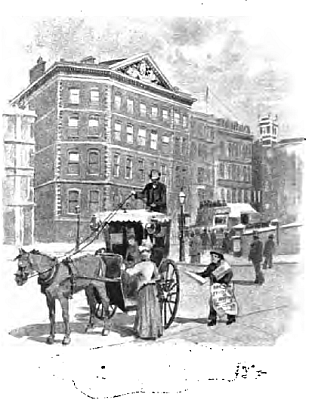

Search london history from Roman times to modern day
Roman London - the London wall
These pages are based on a "Royal Commission On Historical Monuments 1834" - actually it is 1928; which is in the public domain.
(40) . South of Ludgate, The line of the Roman wall from Ludgate to the Thames
is badly recorded. Two portions, however, appear on the subjoined evidence to
have continued the line from the Old Bailey southwards : —
(a) In Playhouse Yard. W. Chaffers, Junr., records that in sewer operations a
portion of "old London wall '' was exposed. From the context it appears to
have run North and South in a line with Ludgate. It was 10 feet thick and “
composed of large unhewn stones embedded in a sort of grouting composed of
powdered bricks, lime and gravel."
The wall was tunnelled through but not destroyed .
A second account of the discoveries in Playhouse Yard is contributed by “ E. B.
P.” He states that a wall 8 to 10 feet thick was found near the West end of
Playhouse Yard near the Apothecaries' Hall and within 100 feet of it (presumably
farther East) were two others of the same massive character, all three running
North and South. Which of these walls was that seen by Mr. Chaffers is uncertain
but E. B. P.’s identification of the western wall with the town-wall is
obviously wrong. It is possible that all three walls were part of the
Blackfriars Convent.
(b) Under the “Times” Office. The position of a fragment is indicated on a
sketch-plan in the Builder, 1855, 221 and 269, showing the line of the wall
South of Ludgate in its relationship to the Times building. Roach Smith
describes this fragment as a very thick wall of three distinct constructions.
That of the Roman city-wall ; a reparation of considerable solidity which might
be Norman or Early English work ; and, above all, the remains of a passage or
window which probably belonged to the Blackfriars Monastery.” The section was
examined during some alterations to the buildings.
The fragment has been subsequently destroyed.

Times Office
Trying to avoid privacy and cookie settings overwriting content